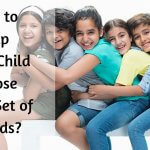4 different types of parenting styles and how do they effect your kid?

Introduction:
Recently I was taking a walk in a park and I happen to notice a kid of four or five years with his maid. He was very enthusiastically relating to an incident that happened in his school to the maid. But the maid was not interested. She was not even making eye contact with the child.
I felt sorry for the child for not being able to share one of his happiest moment with his parents. This has become a common story among the new families where the parents hardly have any time for their children, they continue to nurture them with the same parenting style and thus the child ends up having behaviour issues.
Parenting styles evolving with changing times:

When it comes to parenting, we go by the style which our parents had adopted while parenting us. But now the times have changed. The millennials of today are busy with their careers. They have to walk the rope between their profession and parenting. The social fabric is also different from their parent’s times. They have to figure out on their own how to parent their child.
Sometimes it is the other way around. The child becomes the centre of the universe so much so that parents push everything else to the backseat. This kind of parenting does more harm than good. The grandparents, aunts, uncles or even neighbours may be too busy, working, not in good health or other obligations to support or advise the young couple.
In today’s times, parenting is all the more important since the future of the child depends on it and there are many distractions to avoid.
What are the different styles of parenting?
- Authoritarian or harsh parenting
- Permissive or easy-going parenting
- Authoritative or positive parenting
- Uninvolved or neglectful parenting
A sneak-peek into these styles of parenting will help you, evaluate your own parenting style and adopt the best practices that suit your child’s personality.
1. Authoritarian or harsh discipline technique of parenting:

Characteristics of this style are:
- The child should obey all the rules blindly.
- Punishment takes precedence over discipline.
- The child often resorts to lying or cheating to avoid punishment.
“Spare the rod and spoil the child”, is the motto of the parents when it comes to authoritarian parenting.” The parents believe that the child should obey them without asking questions. If the child does a mistake knowingly or unknowingly, he is given a punishment.
The discipline is confused with punishment which is often in the form of spanking, no food or locking-up the child in the room. The authoritarian parenting style does not bother to explain the child, “ Why the mistake should not happen and if the mistake has happened what are the consequences.”
The child fears the parent. There was an instance when a student from the school where I taught ran away from home to escape the harsh punishment from the parents when he failed in his exams. After a few days of hectic search, his parents found him on a railway station. He was contemplating suicide.
Outcome:
Strict discipline and setting high expectations by the parents without taking into account the feelings of the child can be dangerous for the overall development of the child. The child will have poor social skills, low academic achievement, and get into drug abuse or delinquency. The relationship between parents and child will deteriorate.
2. Permissive or Easy-going Parenting Technique:

Characteristics of this style are:
- A very easy-going attitude of the parents towards their children.
- The child takes advantage of the soft nature of parents.
- The child will face problems as an adult.
Parents who do not have a strong personality and adore their kids, adopt permissive or easy-going parenting style. They are lenient and believe in, “ kids will be kids”. The parents are either not strict or they are forgiving when the child breaks the rules.
This often happens in a joint-family where the child is the “apple of the eye” of the family or when she or he is a single child in the family. In the Indian context, we see the parents have an easy-going attitude towards the son while neglecting the daughter due to cultural beliefs.
The kids take advantage of the easy-going nature of their parents. They make mistakes and escape from the consequences by making false promises to the parents. The parents do not take parenting seriously and are unable to discipline their children for misbehaviour.
I often meet parents in PTM’s who are not ready to believe or accept that their child is not disciplined or resorts to cheating, stealing or bad-mouthing.
Outcome:
The children often lag behind in academics. At home, they never help their parents nor keep their rooms, cupboards organized. Such children when they grow have low self-esteem and never stick to a job or business often blaming others for their failure. When it is too late, the parents lament on what was wrong with their parenting.
3. Authoritative or democratic parenting technique:

Characteristics of this style are:
- High responsiveness and high demands.
- This style of parenting has a positive approach.
- The child gets to know, why she or he is punished.
- The child is careful and thinks before making decisions.
Also known as democratic parenting, the child’s views and opinions are valued. Parents who opt for this style of parenting are generally more informed and know the consequences of their actions when parenting their child.
They invest more time into parenting by way of explaining and making the child understand, the pros and cons of their actions and why they have to be disciplined. The children at an early age understand that they cannot manipulate their parents. They have fear as well as respect for their parents.
I had a good opportunity to observe the interaction between my childhood friend Sneha and her parents. As soon as Sneha would come from school, she would share her experiences with her parents. One day, we both were playing in the drawing-room and accidentally broke a showpiece.
We both were very scared and we were planning to make up a story of how the showpiece broke. But when Sneha’s mother came to the room, Sneha blurted out the truth. Sneha’s mother was angry but soon she accepted that mistakes can happen. She was, in fact, glad that we spoke the truth and she rewarded us with a cookie.
Outcome:
The children have good social skills and follow the rules at home and at school. They are good at communication and make good decisions when it comes to problem-solving and evaluating risks. They grow up to become independent and successful individuals.
4. Uninvolved or Neglectful Parenting Style:

Characteristics of this style are:
- The parents are too busy solving their own problems to give time to parenting.
- There is little or no emotional attachment between the parents and the child.
- Children are neglected and as a result lack confidence.
- Few or no demands and lack of responsiveness.
In this kind of parenting style, the parents are never involved in the life of their child. They do not know which standard their child is studying or who their friends are.
They miss out on important events of their child, like birthdays and parent-teacher meetings. Such parents are busy with their career ambitions, social life or personal problems, and they often leave their child in a creche, with a babysitter or grandparents.
A young working couple in my flat has a lovely child who is four years old. When at home, the parents are either on the phone, social network or socializing. The young child doesn’t have a company and I see him playing with toys or gadgets all alone. He loves to come and play with my children and doesn’t respond when his parents call him.
Outcome –
When children grow up, they have low self-esteem and do not have good memories of their childhood. They blame their parents and often resort to anti-social activities.
Types of parents:

-
Over-protective parents:
These parents are usually very attached to their children. The parent is always scared of the worst and never lets the child go out of their sight. They fuss over the child, protecting him/her even from minor mishaps like getting hurt which is a part and parcel of a normal childhood. The result is, the child will never be independent or be ready to take any risks. Thus he will always look for help or advice.
-
Ambitious parents:

These parents have high hopes from their child. The parents will spare no efforts in providing all the amenities to their child, will get their child enrolled in the best school, escort the child to coaching centres and have a detailed plan mapped out for the bright future of their child irrespective of his /her interest.
-
Egoistic parents:
This parent believes that his or her child is extraordinary. The mother, for example, will never accept that her child is bullying, stealing or using abusive language. The child is never questioned by the parent and the result is that he might grow up into an individual who will never accept his faults and will have problems at work and in personal relationships.
-
Pampering parents:
These parents never say no to their child. They lavish their child with all the comforts in life. The result is the child grow into a selfish, self-centric and demanding person who never knows to reciprocate or give back.
-
Balanced parents:

These parents know the importance of childhood. They never pressurize their child but guide him/her to his/her fullest potential, they believe in the concept of nature versus nurture. Thus, they take into account the nature of the child and at the same time nurture it with good habits.
Such parents teach their children hygiene habits, table manners, work discipline, etc. and strive to transform them into successful individuals.
Bottom line:
Some children have a strong personality and are not easily influenced by their parents. They carve their own niche and become successful in life. Sometimes a child in spite of having caring parents get carried away due to the negative influences of his peers.
Also, there are kids who cannot be raised by one particular parenting style. But, as parents, whether we are homemakers or professionals, we can strive to bring out the good in our child and guide him/her to grow into a successful individual.




